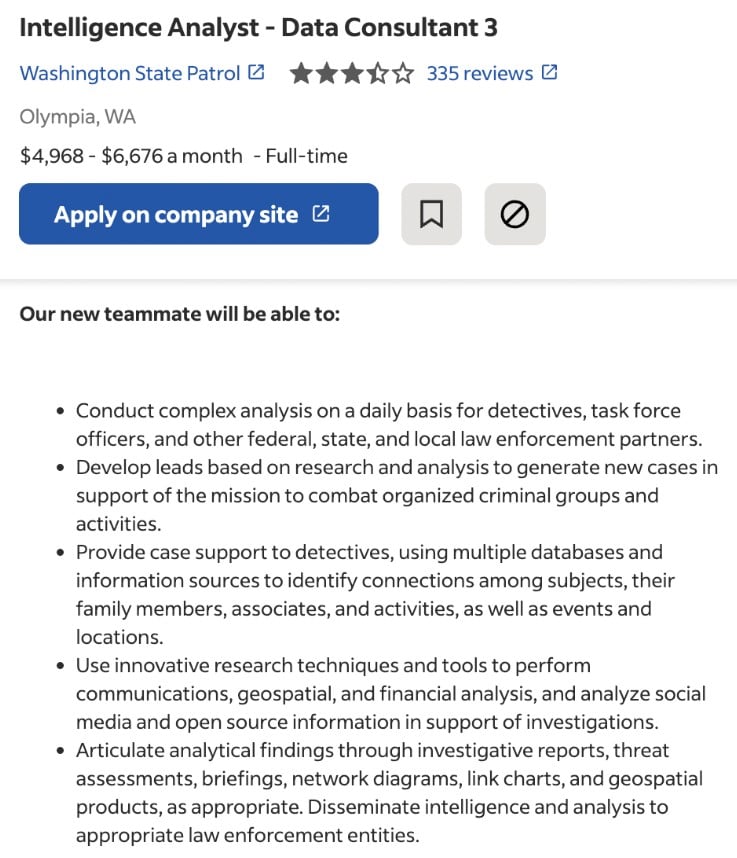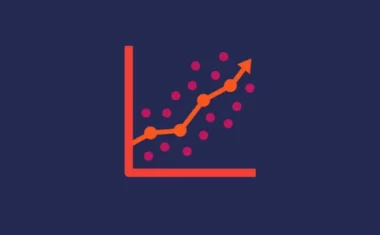Free Data Analytics Course
Jumpstart your journey with 25 essential learning units in data analytics. No cost, just knowledge.
Consultants in any field can provide invaluable insights for organizations small and large. With a bird’s eye view, they offer a unique perspective that those enmeshed in an organization simply can’t. And the field of data science and analytics is no different.
Data consultants bridge the gap between data problems and business decisions. The demand for data consultants is high, the pay is competitive, and the impact you can make as a data consultant is significant.
Below, we’ll examine how data consultants differ from data analyst and data scientist positions, the practical experience and education required to land a job as a data consultant, and what a day in the life of a data consultant looks like.
What Is a Data Consultant?
Data consultants are professionals who guide businesses on data management, governance, and best data practices. They are typically experts in one or more data fields, such as data analytics. Other specializations include data science and data engineering. Data consultants usually work with data teams to build best practices, create insights, and experiment with data to develop business solutions.
Data Consultant: Role and Responsibilities
Here are some commonly asked questions when it comes to roles and responsibilities for data consultants.
What Does a Data Consultant Do?
Data consultants participate in the data operations of an organization by identifying opportunities for scaling and improvement. A data consultant may be involved in core data tasks like developing custom data models, but they do so with a more strategic goal in mind. They aim to streamline data usage considerations across the organization. Data consultants who work for a consultancy firm do this for the firm’s client requirements.
Data Consultant: A Day in the Life
Despite the diversity of projects, there are some typical tasks in a day in the life of a data consultant. Most data consultants who work at consultancy firms start their mornings with stand-ups, which is where they establish the tone for the day and might also check in with the progress of projects to gauge which team needs the consultant’s insight.
The rest of the day might involve attending client meetings and working on business intelligence projects. These can include demos for incoming clients, strategy decks for internal stakeholder meetings, and other hands-on projects. Many data consultants are tinkering with Tableau and other data visualization tools daily. They build pipelines for data modeling, run data mapping tests, and manage multiple databases across client projects. This differs from the day in the life of a data scientist, as a data consultant isn’t at the center of data-heavy tasks.
Data Consultant Job Description
Here’s a fairly typical job description for a data consultant. As you can see, the crux of the tasks remains the same, with some diversity due to the nature of the industry (law enforcement).

The job description of a data consultant, regardless of the industry, usually includes the following tasks:
- Using data visualization tools for reporting
- Build data product roadmaps
- Implement decision systems that bolster KPIs
- Developing new processes and reporting requirements to make the data analysis process more efficient
- Running quality assurance on data pipelines
- Collaborating with project managers and technical leads to ensure project implementation
- Creating attribution models and dashboards
Becoming a Data Consultant: General Requirements
These are the general prerequisites for a data consultant:
Education
If you’re going the more traditional education route, you’ll need a bachelor’s degree or M.S. in computer science, business administration, economics, information systems, or another relevant field. If you do not have a degree, consider pursuing an online data science bootcamp.
Whichever path you go, it helps to have some data analytics certifications under your belt. Certifications validate specific areas of expertise in the data field. You can get the Power BI Data Analyst certificate to become a business data consultant, or consider the CompTIA Data Analytics certification to brush up on your data analyst skills.
Skills
Beyond your educational knowledge and background, potential recruiters will look for the following in-demand skills:
Technical Skills
- Data modeling based on complex data sets
- Database management
- Dashboard creation
- Building tables with SQL
- Programming with JavaScript and Python
- Proficiency in ETL and data wrangling concepts
Soft Skills
- Management consulting skills
- Excellent client-facing communication and dedication to client service
- Ability to balance multiple high-priority tasks
- Quick adaptability across projects
- Analytical skills like problem-solving
- Critical thinking skills
Tools
There’s no “mandatory” list of tools for a data consultant. You should be familiar with a few of the following tools to present yourself as a competitive candidate for data consultant roles:
| Purpose | Tools |
|---|---|
| Data Visualization | Tableau Microsoft Power BI Excel Qlik |
| Database Management tools | Microsoft Access |
| Project Management and Collaboration | JIRA Monday Jupyter Notebook |
| Natural Language Processing | |
| Cloud Computing for Data Storage | Amazon Web Services Microsoft Azure Google Cloud |
| Data Ethics |
Experience and Expertise
Recruiters look for candidates who have the following qualifications:
- Previous experience in the data field
- Knowledge of client communication
- Deep familiarity with information systems
Other Prerequisites
- Knowledge of troubleshooting data-related issues
- Written and oral business storytelling and presentation
- Basic understanding of automated data reports
- Business capabilities
- Proven consultant skills
Get To Know Other Data Analytics Students
Cleo Valencia
Student In The Data Analytics Bootcamp at Springboard
Bart Teeuwen
Global Business Analyst, Global Talent Intelligence (GTI) at Meta
Jo Liu
App Quality Analyst at Snap Inc.
Who Should Consider a Career as a Data Consultant?
A career as a data consultant is ideal for anyone with a bachelor’s degree in IT, computer science, or related data fields and a few years of experience. The following professionals can leverage their tools and network to begin a successful career as a data consultant:
- Data analysts
- Data scientists
- Data engineers
- Data architects
- Business analysts
- Data quality management strategists
- Data project managers
How Much Does a Data Consultant Earn?
Data consultants, like any other professional, earn based on years of experience, the nature of the company, location, and other defining factors. However, since consultancy is a niche in itself, data consultant salaries also depend on the data domain. Here are a few annual salary ranges of data consultants to give you an idea:
Data Architect Consultant
Data architects develop and maintain the data infrastructures for an organization. They create the necessary workflows and architecture for data analysts and data scientists. Data architect consultants earn a median salary of $165,330.

Data Science Consultant
A data science consultant develops predictive analysis models and uses their business acumen to meet a client’s goals. Data science consultants earn an average of $115,631 per year.

Data Management Consultant
Data management consultants establish data governance practices based on market trends. They earn an average of $98,641 per year.

Senior Data Consultants
Senior data experts, who usually have 3-4 years of experience, can be valuable across multiple data domains. A senior data consultant earns an average of $113,515.

What Does the Career Path of a Data Consultant Look Like?
A data consultant position is high up in the hierarchy of data roles. It’s by no means an entry-level position. Data consultants usually start with entry-level positions as junior data analysts. After a few years, you can go work for a consultancy firm. Here, they will have multiple interesting clients and projects when compared to working in-house for a company.
A data consultant with significant experience could move on to higher-level managerial roles at companies. These leadership positions allow them to oversee the work of data teams.
Related Read: How to Become a Freelance Data Analyst
Data Consulting Career: Real-Life Stories and Examples To Inspire You
Here’s how two data consultants got to where they are today.
Jenny Tumay
When Jenny Tumay was a first-year student, she majored in computer science and psychology. During that time, she pursued a bioinformatics internship at a genomics research institute. The internship involved conducting statistical tests on data, navigating data pipelining processes, and performing data visualization. She also recommends joining a graduate-level class (or a data science bootcamp) in quantitative data analysis.
To add to her work experience, Jenny volunteered as a teacher at a technology camp, where she taught Python, Photoshop, and HTML. This position allowed her to polish her leadership and time management skills.
Her story shows you can use non-conventional routes and try different things to reach the coveted data consultant position. She is now a consultant at EY.
Timo Dechau
Data consulting was attractive to Timo because of the freedom it gave him to pursue what he loved. He has been working as a data consultant for almost a decade and is now the founder of a boutique consultancy firm.
Timo suggests identifying a particular niche as part of your consulting services. You can achieve this by listing your past data projects (either as an analyst/scientist or consultant) and identifying a common link that becomes your USP.
His second suggestion is to have a growth strategy. Identify a set of short-term and long-term goals in mind. He also recommends that you diversify your projects. Choose high-paying work even if it involves something you don’t necessarily enjoy. Complement that with work with long-term growth potential, even if it is low-paying.
Timo’s final recommendation is to temper expectations. Data consultancy is a long journey with lots of variables. Keep building on essential skills and finesse your services with continuous learning.
Data Consultant FAQs
We’ve got answers to your most frequently asked questions.
Is Data Consulting a Stressful Job?
Data consulting combines the need for technical expertise and client-facing analytical skills. Data consultants must advise client partners on their data usage and boost business analytics. The fatigue from switching between these roles and not having control over choosing projects is stressful. You can offset this stress with clear client expectations.
Are Data Consultants in Demand?
Data consultants are in high demand globally. Both established companies and startups consistently seek data consultants and experts to meet their data goals and enhance their performance.
What Is the Difference Between a Data Consultant and a Data Analyst?
Data analysts gather and analyze data points based on defined business objectives and problems. They clean, analyze, and make sense of the data. A data consultant provides guidance on data management and identifies gaps in the data analysis process.
Since you’re here…
Considering a career in data analytics? We can get you there. Don’t take our word for it – check out our student reviews. After just 6 months of study in our fully flexible Data Analytics Bootcamp, we’ll boost you into a job in the field or your tuition back. Get started now with our free data analytics course.









